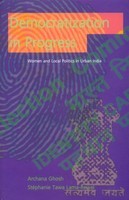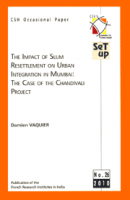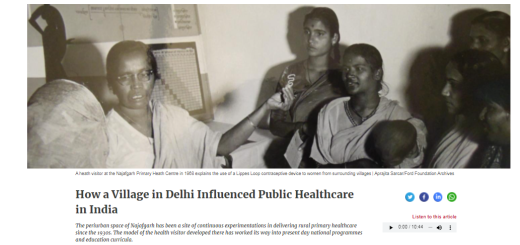[CSH Seminar – ONLINE] Theory and evidence for a large-scale agroecological transition in India (B. Dorin)
Bruno Dorin
Centre de Sciences Humaines/CIRAD-CIRED
Theory and evidence for a large-scale agroecological transition in India

The session will be online via Zoom on 15 February 2021, 5:00 pm onwards:
https://zoom.us/j/97869838117?pwd=dDJhWmlLRzQ2MFNvTGRWWVRMU1lWZz09
To get a priority access in case of large affluence, kindly register to:
neeru[dot]gohar[at]csh-delhi[dot]com
Abstract:
Modern economic growth frames a long-term incidental future for agriculture: people move from agricultural to non-agricultural occupations, farm labour productivity increases with the use of modern industrial technology and, over time, the large initial agricultural wage gap vanishes when the share of agriculture in both total employment and value added is 3%. This was the scenario in OECD countries. However, in large parts of the developing world, we observe an increase in the agricultural labour force and a rise in the wage gap. We examine parameters that prevent countries from moving along the OECD path and show how land squeeze, rather than barriers to modern technology, drive growing divergences within and between countries. Without a massive emigration of labour to lift land barriers, this suggests embedding agriculture also in the service sector, with small-scale agroecological farming as an alternative to large-scale industrial agriculture and mega-slum-urbanization.
Speaker:
 Dr. Bruno Dorin (PhD. in economics, postgraduate degree in agricultural engineering) has 32 years of research experience, based in France (17 years) and India (15 years). He is an economist at CIRAD (www.cirad.fr) and CIRED (www.centre-cired.fr) currently based in New Delhi at CSH (www.csh-delhi.com) as Head, “Economics and Development”. He works on a large range of issues (nexus agriculture-nutrition-poverty-ecology) and has developed Agribiom, a quantitative tool for analysing production, trade and use of biomass since the 1960s, and imagining future scenarios of structural transformation (horizon 2050) with a special focus on agricultural employment and labour productivity. Is author or co-author of many academic articles, in addition to five books in English, including “The Indian Entrepreneur” (Delhi 2003), “Agriculture and Food in India” (Delhi 2009), “Agrimonde: scenarios and challenges for feeding the world in 2050” (Versailles 2011; Springer 2014).
Dr. Bruno Dorin (PhD. in economics, postgraduate degree in agricultural engineering) has 32 years of research experience, based in France (17 years) and India (15 years). He is an economist at CIRAD (www.cirad.fr) and CIRED (www.centre-cired.fr) currently based in New Delhi at CSH (www.csh-delhi.com) as Head, “Economics and Development”. He works on a large range of issues (nexus agriculture-nutrition-poverty-ecology) and has developed Agribiom, a quantitative tool for analysing production, trade and use of biomass since the 1960s, and imagining future scenarios of structural transformation (horizon 2050) with a special focus on agricultural employment and labour productivity. Is author or co-author of many academic articles, in addition to five books in English, including “The Indian Entrepreneur” (Delhi 2003), “Agriculture and Food in India” (Delhi 2009), “Agrimonde: scenarios and challenges for feeding the world in 2050” (Versailles 2011; Springer 2014).









